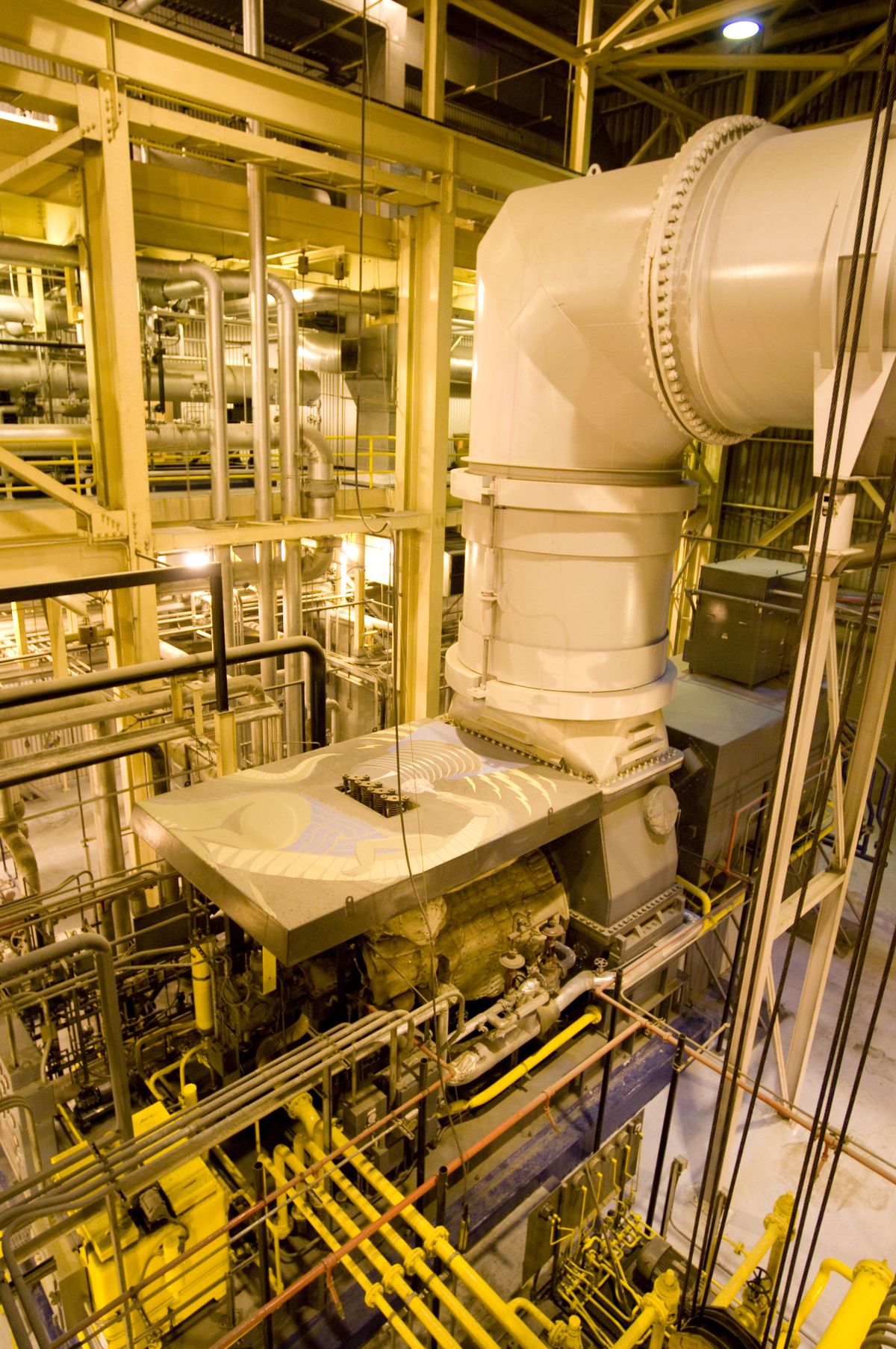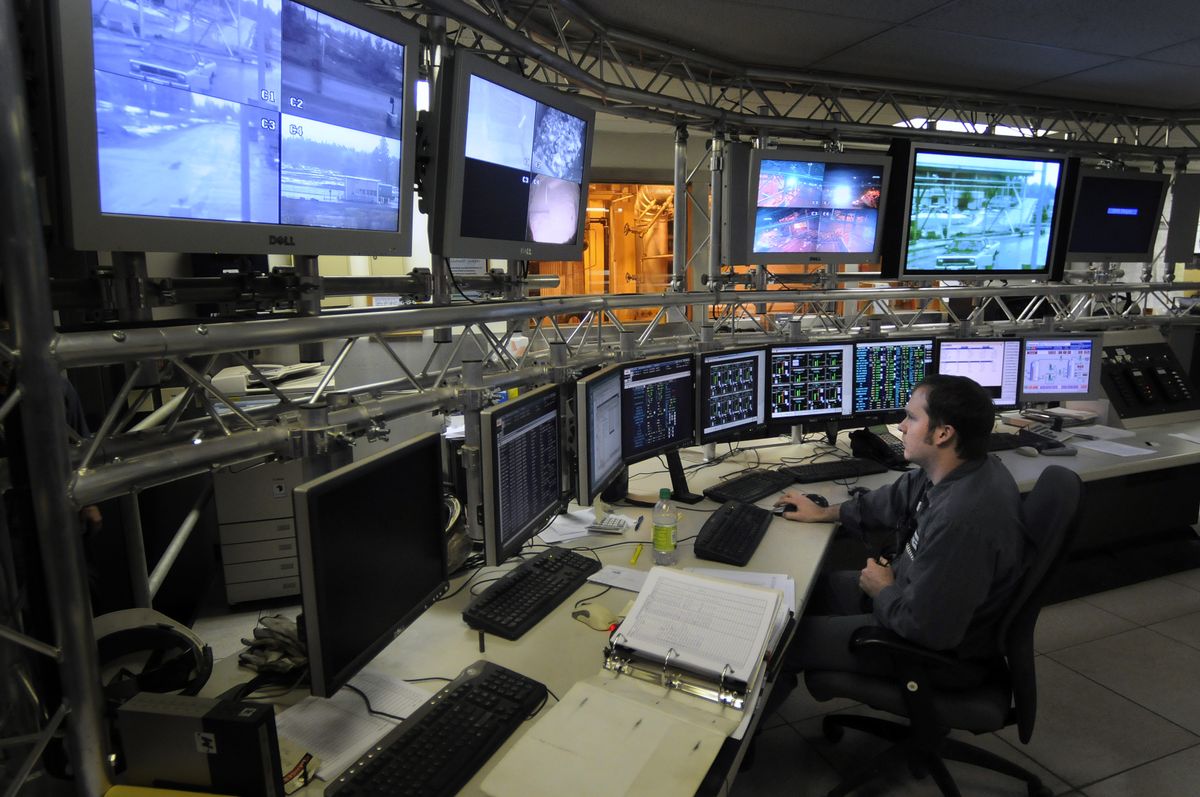Plant’s electricity could gain value with ‘renewable’ status
Heat generated by burning garbage drives a turbine that generates electricity. Spokane’s plant is the only one like it in the state. (Colin Mulvany / The Spokesman-Review)
OLYMPIA – How do you instantly boost the value of the electricity generated by Spokane’s waste-to-energy incinerator?
You declare it renewable energy.
That’s what city officials and some state lawmakers want to do. If they’re successful, with the stroke of the governor’s pen, the kilowatts from the Waste-to-Energy Plant would be considered “green energy” – and worth substantially more.
Spokane’s is the only such plant in the state. City officials envision the plant anchoring a green industrial park, with the steam and some of the power used locally.
Senate Bill 5806 was sponsored by Sen. Fred Jarrett, D-Mercer Island, who said he was impressed by Germany’s use of high-tech incinerators to produce power and reduce the waste going into landfills.
“I think it’s one of the arrows that we should have in our quiver,” he said.
Some environmentalists are uneasy about the plan, however. Even one of the local lawmakers who is co-sponsoring the bill said he worries that it would detract from recycling.
Seventeen states now consider trash-to-energy incinerators to be sources of renewable power, according to Russ Menke, director of the Spokane regional solid waste system. He said an alternative – capturing gases seeping from rotting landfills and burning them – is 10 times less efficient than burning the garbage and using the heat to turn steam turbines.
Valuable energy “is currently being buried in landfills,” said Douglas Gilmore, who works for a waste recovery company, WRSI, that’s trying to import German-made equipment to burn waste. There are more than 500 waste-to-energy plants worldwide, he said, including 90 in the U.S.
Since it was built in 1991, Spokane’s plant has sold its power to Puget Sound Energy. That contract expires at the end of 2011, Menke said. If the legislation passes, he hopes to get a better price for power, with the savings in turn reducing garbage-collection fees.
Sen. Chris Marr, D-Spokane, is a co-sponsor of the bill. But he has reservations about it.
In 1989, Marr said, the state adopted a goal of recycling 50 percent of waste. Two decades later, Spokane – and the state – recycles about 43 percent.
“That’s not an enviable record,” Marr said. “I don’t believe this (bill) passes the straight face test unless there’s a commitment to improve and achieve much higher waste diversion.”
Suellen Mele, of Washington Citizens for Resource Conservation, said the group is worried about toxic emissions from incinerators. Like Marr, she’s also worried that burning trash for power will hurt recycling efforts.
“To run economically, incinerators need to be fed,” she said.
Menke said local officials intend to increase recycling efforts. He wants to develop a curbside system with mixed recyclables in one bin, like many cities already have in place. That would increase recycling substantially, he said.
“Recognize that the state of Washington is one of the leading recyclers in the United States,” he told Marr. “We have higher recycling rates than nearly anyone.”
And burning allows for recycling things like small pieces of steel and iron, he said. The plant captures wire, wheel rims and shock absorbers, which typically wouldn’t be recycled, and sells them as scrap to be melted down.
In 2006, Washington voters approved Initiative 937, which requires major electric utilities to meet conservation targets and use a certain percentage of renewable power added to the power grid after early 1999. Jarrett’s bill would amend that law to include municipal trash as a renewable resource.
“The purpose of the initiative was to generate new renewable power,” Menke said. “But in effect you’re discriminating against the guy who already built renewable power.”

